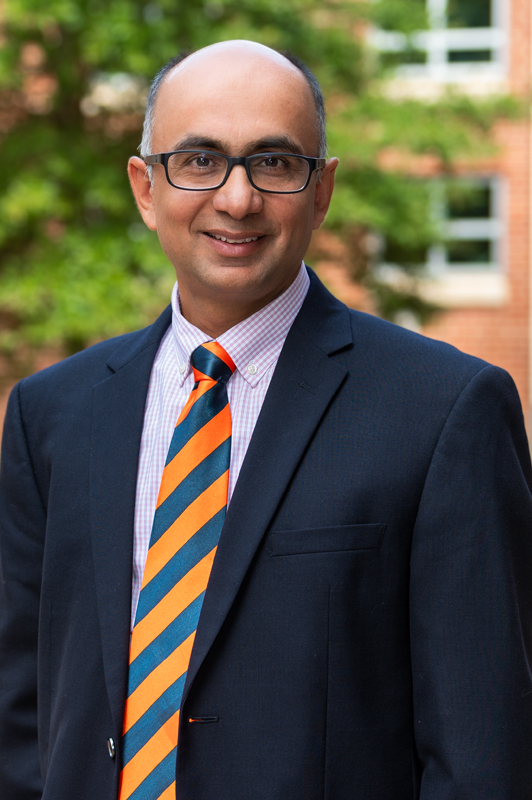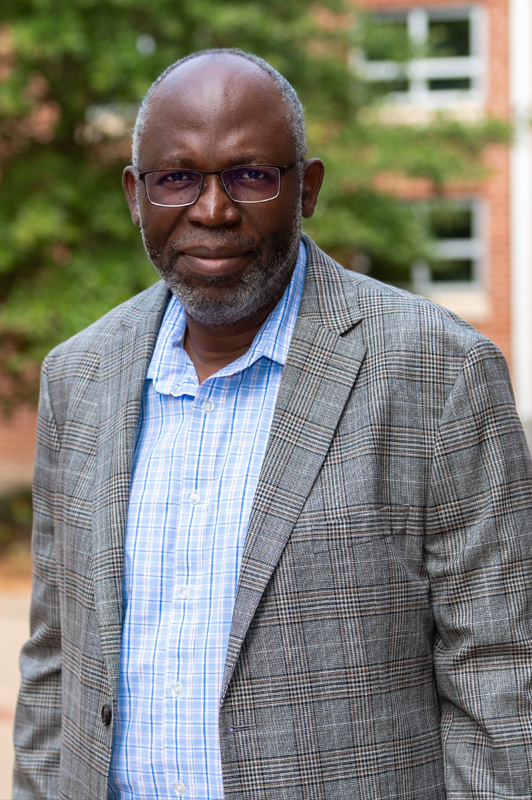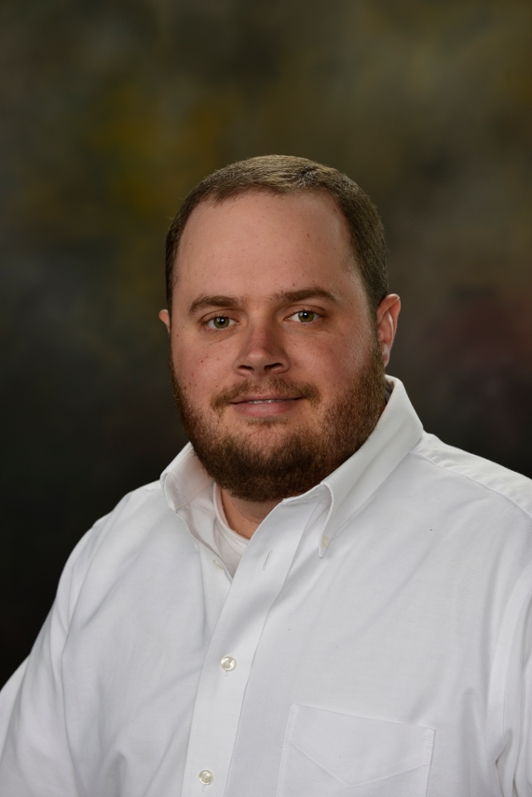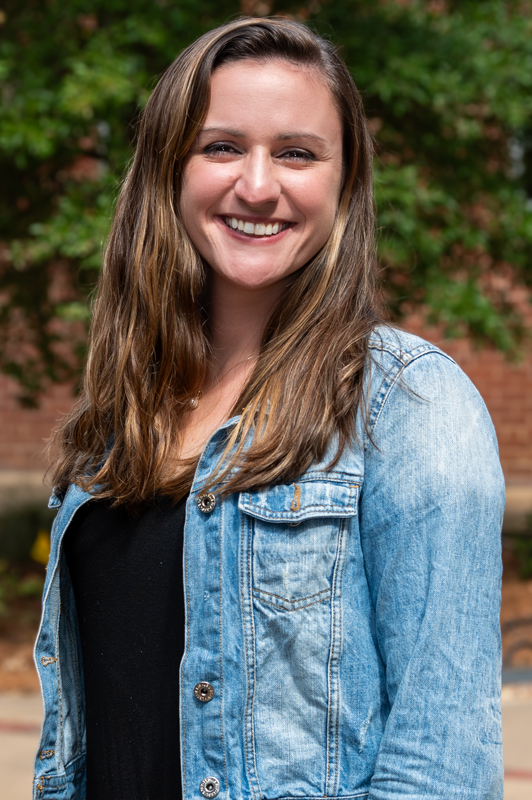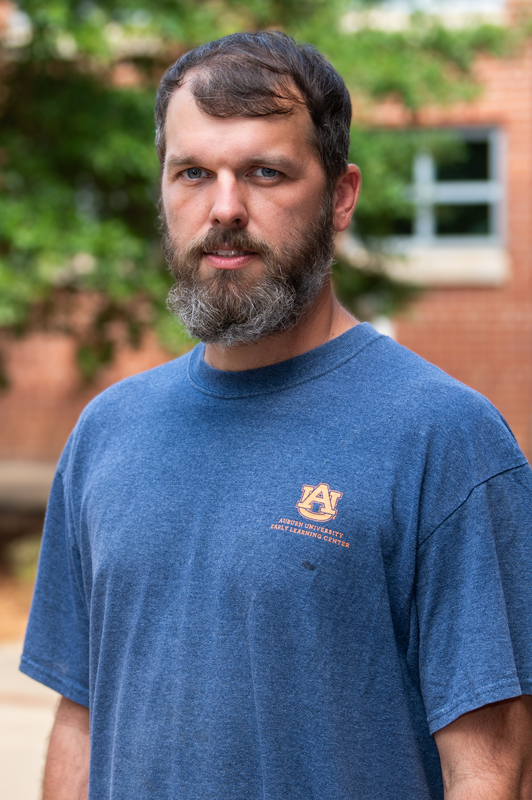Biosystems Engineering researchers lead $2M project to produce hydrogen from blended feedstock
Published: Jan 20, 2023 12:00 AM
By Paul Hollis
Auburn University researchers are leading a $2 million Department of Energy grant that aims to produce hydrogen from blended feedstock, such as legacy waste coal, forest residues and municipal solid waste.
“The benefits of converting waste coal, biomass and food waste are twofold,” said Sushil Adhikari, professor of biosystems engineering and principal investigator for the proposal. “First, it will help us to reduce greenhouse gas emissions from hydrogen production. Second, it will help to solve food waste problems.”
Auburn’s co-principal investigator for the project is Oladiran Fasina, department head and alumni professor for the College of Agriculture’s Department of Biosystems Engineering.
Other engineering staff involved in this project are James Johnson, Caroline Whiting and Bobby Bradford, who work for the Department of Biosystems Engineering and the Center for Bioenergy and Bioproducts, or CBB. The CBB is funded by the Alabama Agricultural Experiment Station, or AAES, College of Agriculture and the Samuel Ginn College of Engineering.
The Biden Administration is focused on producing clean hydrogen at $1 per kilogram, Adhikari said, and this goal can be reached through the use of biomass and food waste while reducing greenhouse gas emissions.
The primary objectives of the project—titled “Hydrogen Production from Modular CO2 Assisted Oxy-Blown Gasification of Waste”—are to understand how biomass, waste coal and food waste will flow into the gasifier; how biomass, coal and food waste composition will impact the gas composition and quality; and to understand the cost of hydrogen production from biomass, coal and food waste blends.
Auburn researchers are partnering with RTI International—an independent, nonprofit institute that provides research, development and technical services to government and commercial clients worldwide—to facilitate a unique combination of experimental and modeling research to produce hydrogen from the gasification of a coal-food, waste-forest residues mixture while reducing greenhouse gas emissions.
The research will examine the gasification performance of coal waste from Alabama, food waste discarded from cities and towns and southern pine residues mixture in a laboratory-scale, fluidized-bed gasifier to produce hydrogen. Food waste will be supplied by Burcell Technologies located in Cordele, Georgia.
Other specific objectives of the project are to: 1) understand the effect of feedstock blends on flow properties and energy requirement for preprocessing; 2) examine the effect of feedstock blends on syngas composition and contaminants; 3) evaluate water-gas shift catalysts and sulfur and metals removal sorbents for high-purity H2 production; 4) demonstrate 100-hour operation of an integrated system for waste blend gasification and syngas clean up and conditioning at a 1 kg/hour scale gasifier; 5) perform techno-economic analysis for hydrogen production using waste materials; and 6) develop a technology maturation plan to advance the proposed technology beyond TRL-4.
Flow properties for the coal-food, waste-forest residues mixture will be measured, and syngas composition will be analyzed for permanent gases such as carbon monoxide, carbon dioxide, methane and hydrogen along with contaminants such as tar, hydrogen sulfide and ammonia.
RTI will develop a gas cleanup system and process model for hydrogen production from the waste coal-food, waste-biomass mixture using data gathered in the laboratory-scale system at Auburn.
The 24-month research project will have applications in industries such as fertilizer synthesis, power production and chemical production, Adhikari said.
Media Contact: , jdh0123@auburn.edu, 3343190721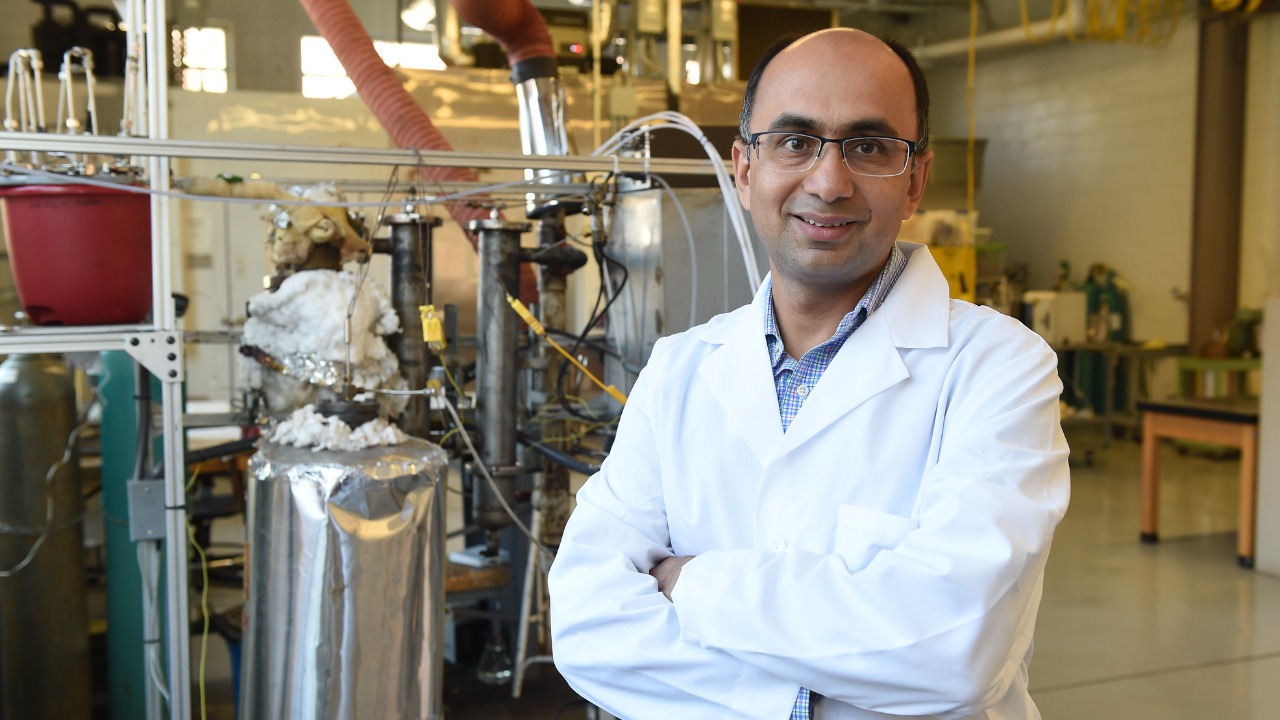
Sushil Adhikari


